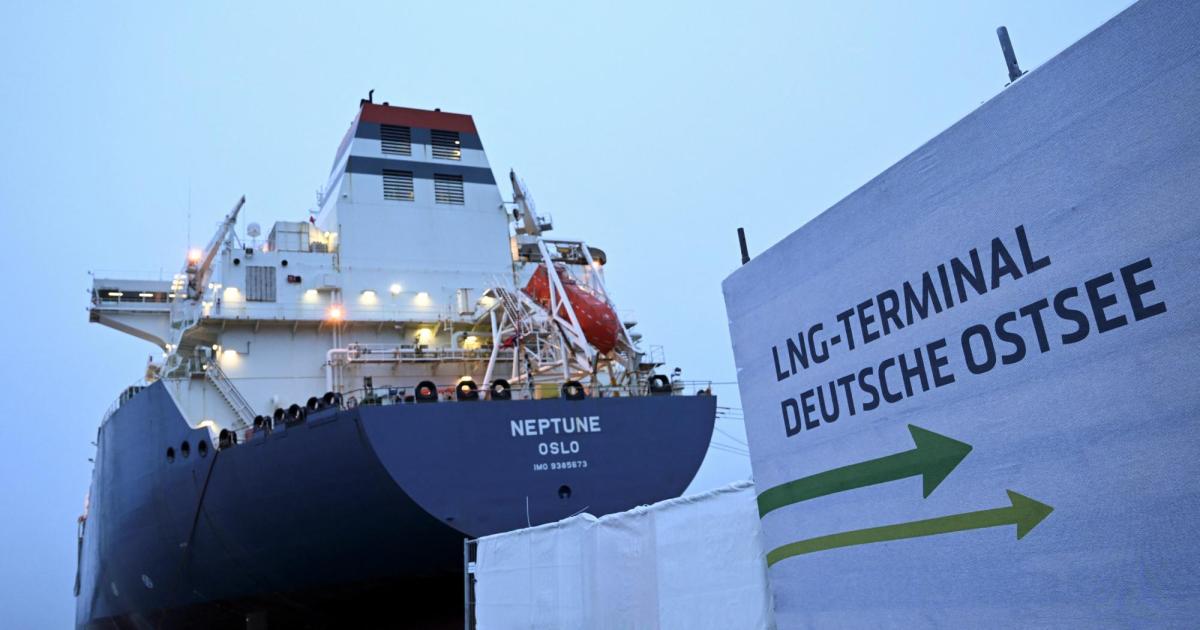In its new sanctions package, the EU is including Russian liquid gas for the first time (Liquefied Natural Gas, kurz LNG) targeted. However, contrary to a demand from the EU Parliament, the company’s own imports should not be stopped. On Wednesday, the permanent representatives of the EU states only discussed stopping Russian LNG deliveries to third countries via EU ports.
Russia operates icebreaking tankers to transport liquefied natural gas from the Siberian Yamal Peninsula to be transported away. However, these often only travel to a European port, where the cargo is taken over by regular tankers for onward transport. This means the icebreakers can transport more cargo and the LNG terminals can be better utilized.
This model is intended to be prevented by the sanctions. However, this only affects around a fifth of the Russian liquid gas that comes to Europe. The rest is imported for consumption in EU countries. This also means there is no access to direct exports to third countries.
Russia is the third largest gas supplier
According to the Institute for Energy Economics and Financial Analysis (IEEFA), EU states spent more than 8 billion euros on Russian liquefied natural gas in 2023.
In the first quarter, Russian LNG accounted for around 8.8 percent of European gas imports, according to data from the Bruegel think tank. A further 12 percent came through the Turkstream and Ukraine pipelines. Overall, Russia was the EU’s third largest gas supplier, after Norway with 36 percent and the USA with a little less than a quarter (23.5 percent).
As part of the sanctions package, companies based in the EU will also be banned from investing in Russian LNG projects, reports Politico. Russia has traditionally exported a lot of gas through pipelines and does not have enough liquefaction plants to shift the quantities to tankers – European investors should no longer participate in the expansion.
